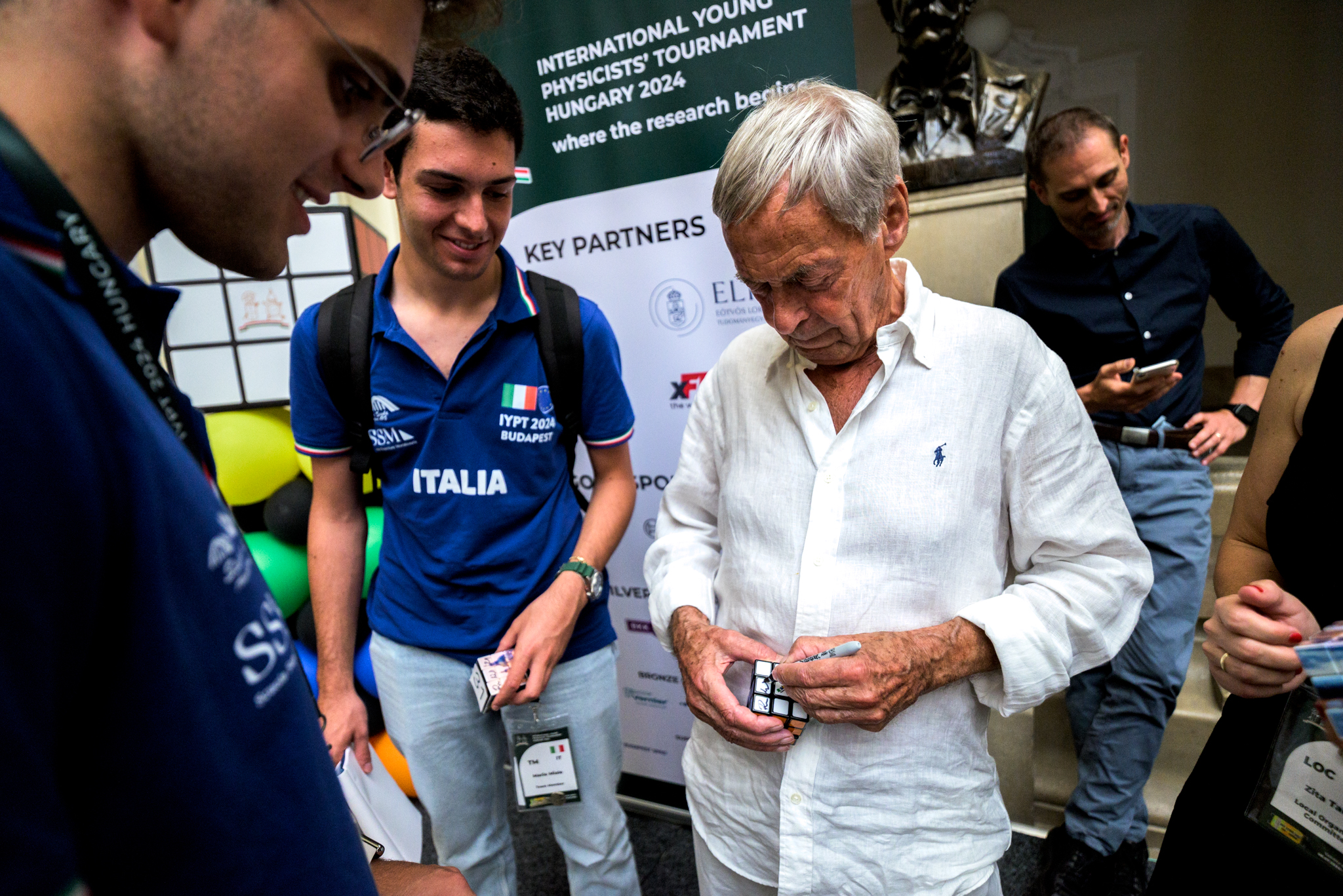News feed
Ernő Rubik: "What they learn here are not just professions, but vocations"
2024. 07. 16.
The world-famous inventor, who once studied here, visited BME and gave his advice to the students.
Ernő Rubik, a former student of BME and inventor of the Rubik's Cube, visited BME to mark the opening of the International Competition for Young Physicists. The architect and computer designer, who celebrated his 80th birthday on 13 July, was photographed by several participants of the competition, signed lots of cubes, gave a few interviews and finally answered questions to bme.hu.

"Five years is a long time, a lot happens during such a period, and so many years having passed, you remember things in a positive way. Not what was a problem, if there was any, and not what was good, if there was any, but the whole thing," he said when asked what memories he can recall from his university years. He added that when one is young, they think to have life ahead of them, find a connection with their peers and learn about something that can be called a profession. Then either stop there or decide to study something else.
"I went on, which wasn't common practice at the time, but with my professor here, Frigyes Pogány, becoming the rector of the College of Arts and Crafts, I had the opportunity to take part in a kind of unconventional further education. So I was able to take a short course to learn another profession, interior design, which was seen as architecture at the time, but was different because of the way it dealt with interiors, the design of the objects, the attention to detail," he recalled.
What is design?
And why was that period important? Well, because it was the beginning of a way of thinking that was not yet called that at the time, "but could be called the birth of design in our country. Now, at least in the industry we know what it is. It is perhaps still not clear to the general public that design is not simply about making a product acceptable, but that it has a content and a purpose. For this to be evident, there needs to be a public capable of appreciating it. In fact, certain types of design in consumer society have been given a very specific task, making things that do not deserve to be sellable. But ideally, it doesn't it adds quality and value to something we need," the creator of one of the world's most popular games explained.

When asked what advice he would give to today's students, Ernő Rubik said: first of all, don't be silent when you have something to say, but listen when you are talked to, and try to live with your eyes open: to find out what you are really capable of and interested in. "What students learn here are not just professions, but vocations. The different sciences and practical skills they can acquire at the university are just the beginning, the start of something that depends on them," he said.
gp
